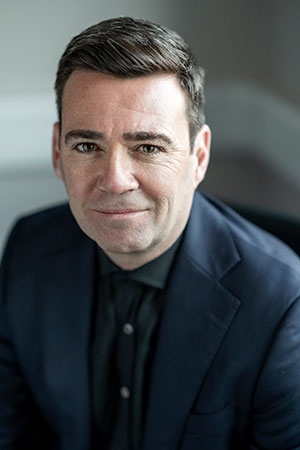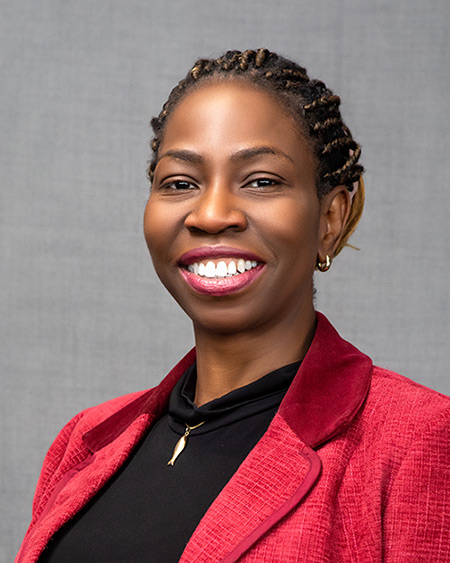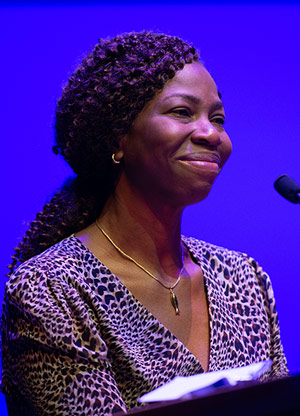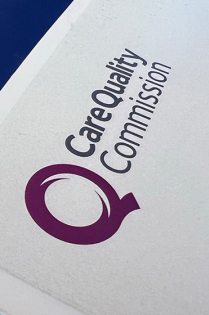

A tale of two cities
Professor Bola Owolabi joined the Care Quality Commission in July 2025 as Chief Inspector of Primary Care and Community Services. She is Director of the National Healthcare Inequalities Improvement Programme at NHS England and works as a GP in the Midlands. We asked her about her hopes for the role, her vision for primary care regulation, and plans to address longstanding concerns about inspections.

As a practising GP, how do you think your clinical experiences will help shape your work as Chief Inspector of Primary and Community Services?
My experiences as a GP give me direct and valuable insight into the challenges that colleagues face daily. I see firsthand the pressures from understanding the needs of changing demographics and workforce issues like reduced headcount, though I am encouraged by the increased number of trainees who are entering the system. I also understand the passion with which colleagues support their communities and face these challenges.
This shapes the four things I want us to focus on straight away: ensuring inspections are contextual and consider operating environments; reducing regulation's impact on practice teams; applying regulatory processes proportionately; and maintaining a person-centred approach.
Having delivered services as a GP for over two decades and having managed them as Deputy Director in a community health trust for eight years, I know our regulatory approach must be both robust and realistic – supporting both practice teams and people who turn to them.
Why did you apply for the role and what are your immediate priorities as newly appointed Chief Inspector?
An independent regulator must be a safety net for people using services, especially marginalised voices which are seldom heard. General practice has a life-changing impact on the wellbeing of individuals and our communities. There's real alignment between my vision and CQC's – supporting exceptional care for all through equitable access, experience and outcomes – that’s why I applied.
People are central to this vision. Ensuring they receive safe, quality, equitable care. At CQC I can ensure we understand our responsibilities, hold each other accountable as a system, and drive better care using our unique, independent voice.
My priorities are all about getting basics right. Inspection numbers have been too low, so I'm working with colleagues in CQC and the profession to look at how we can increase both volume and quality. We need the right approach and expertise to make regulation meaningful and trusted. Without regulatory rigour, people can be at risk of harm, and we can miss opportunities to improve people’s lives.
This requires working collaboratively with providers to develop our assessment framework, agreeing what good looks like and reliably measuring its delivery. I would encourage people to respond to our consultation and make their voice heard. I'm also focused on CQC's role in supporting neighbourhood health initiatives as part of the 10-year health plan.
What is your vision for primary care regulation within the next 2-3 years?
We need people to trust that CQC drives improvement and challenges poor care –ensuring those at the periphery aren't further marginalised, and with providers seeing regulation as partnership they have stake in.
We're committed to listening to people who use services and care providers, enabling them to innovate whilst delivering high quality, equitable care. Over the next 2-3 years, we need to remember that regulation must have people's interests at heart; be proportionate; minimise its impact on providers; and be mindful of the context that they are operating in.
Delivering this vision depends on quality partnerships with the profession as well as the public. That's why I've prioritised early conversations with RCGP, BMA and colleagues. Meaningful change requires collaboration.
I want to get this right, so we have a regulatory approach that clearly supports system improvement for people facing the greatest barriers to quality care. This means understanding provider challenges, recognising pressures, and using that insight to ensure we have processes that help deliver excellent outcomes.
What role can CQC play in tackling health inequalities?
My previous role as NHS England's Director of the National Healthcare Inequalities Improvement Programme was a great honour. Through Core20PLUS5 and collaborative working with NICE, RCGP and other stakeholders, we delivered on many core health inequality priorities, now reflected in the 10-year health plan.
Tackling health inequalities isn't just a distinct area of work – it's also a lens for considering all our activities, this is equally true at CQC. All regulatory processes – registration, notifications, inspection, enforcement – can be powerful tools to address health inequalities.
This includes data and insight ensuring insight-informed assessment approaches. Robust data helps inspectors identify improvement opportunities and demonstrate the impact of getting things wrong – and crucially, right.
CQC's role isn't just identifying concerns,but using our regulatory influence and independent voice to drive system solutions that genuinely reduce inequalities and improve outcomes.
How will you address RCGP concerns about inspection impact and rebuild trust?
We are in a time of rebuilding at CQC as we reflect on recent reviews and the concerns of the providers we regulate and the public. I'm committed to addressing this head-on. Effective regulation requires working with providers whilst giving people who use services assurance about the quality they can expect. We need to hold this balance in mind when thinking about how GPs and practice teams experience our processes. This is going to mean working together to minimise this impact whilst also working in partnership to promote and safeguard good outcomes for people.
We'll continue working closely with the profession as we develop our new approach, collecting feedback through the consultation that will launch soon. In addition, I'm already prioritising conversations with the College and other stakeholders to understand problems and identify practical changes.
My commitment is that inspections should be contextual, proportionate, and minimally distracting whilst maintaining necessary rigour. Trust is earned through consistent action, not words. I'm determined to demonstrate through our renewed approach that regulation can be both rigorous and supportive.
What about concerns regarding potential bias against ethnic minority-led GP practices?
This remains a priority for me personally and organisationally. We know longstanding concerns exist that Black or minority ethnic-led practices are more likely to receive lower ratings and work in deprived areas with less support.
CQC research found ethnic minority-led practices are more likely to serve populations with higher socio-economic deprivation and poorer health outcomes. This context absolutely matters and must be reflected in our assessments whilst maintaining a consistent focus on quality.
Given my background leading the National Healthcare Inequalities Improvement Programme, I understand how systemic inequalities create unfair disadvantages. We cannot have regulatory systems that inadvertently minimise what practices who serve deprived communities are achieving, or that fail to recognise the additional challenges they may face.
A practice serving populations with higher deprivation may be doing exceptional work even if outcome data differs from affluent area practices. We need sophisticated assessment approaches – examining not just isolated outcomes but understanding achievement context.
We will continue to engage with the profession and wider system to ensure regulation is fair for everyone. This isn't just procedural fairness – it's ensuring our approach acknowledges and actively supports efforts to reduce health inequalities.
Read more
Thank you for your feedback. Your response will help improve this page.



